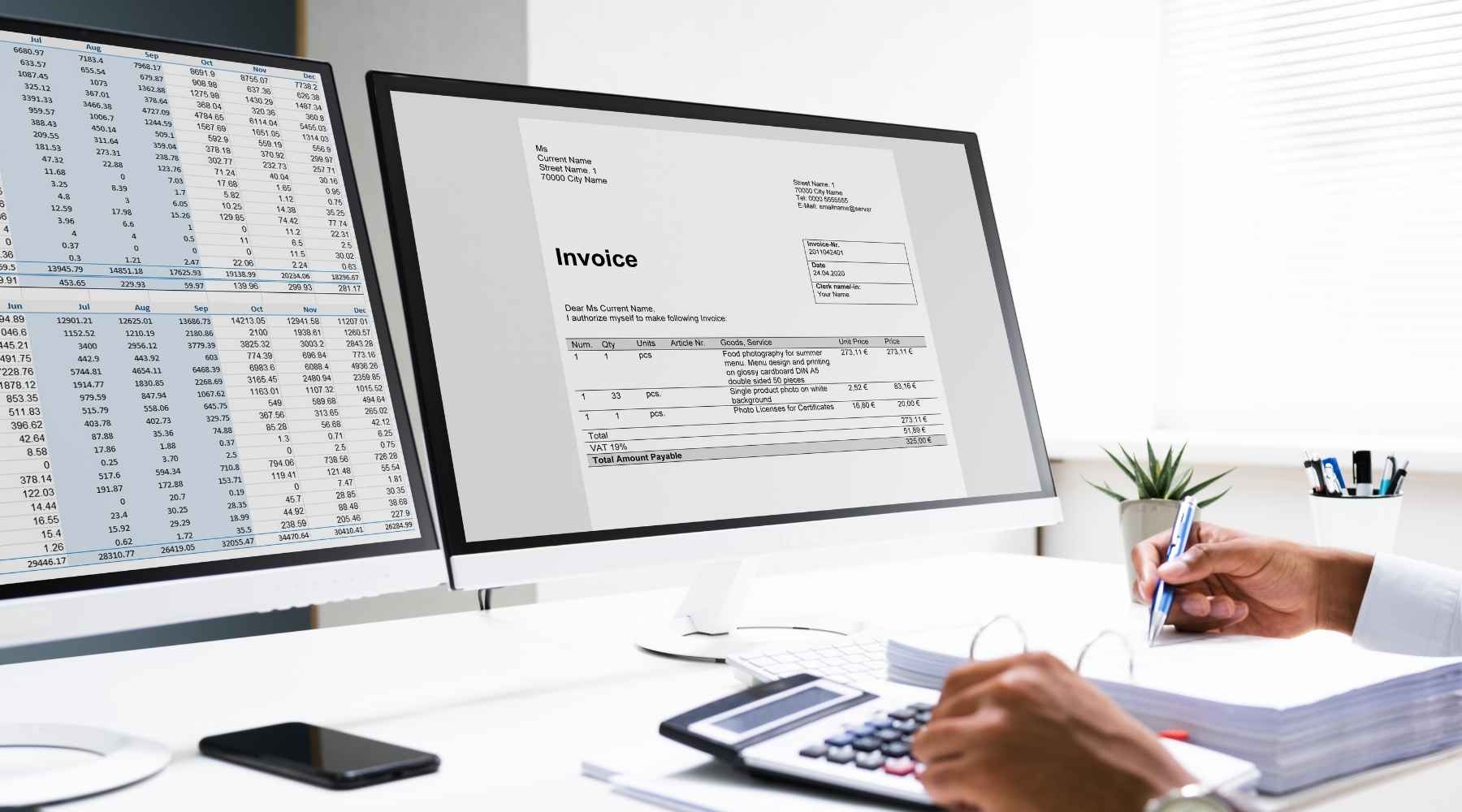Invoices are important documents in financial management and business operations in Vietnam. In particular, with the development of technology, switching to electronic invoices is becoming a mandatory trend for many businesses. So Invoice regulations and regulations on electronic invoice issuance How is it now? This article will clearly explain the concept of invoice, related legal regulations and guide businesses to properly implement the invoice issuance process according to current law.
1. What is an invoice? And the role of an invoice
Invoice is an important accounting document prepared by the seller to record information about the sale of goods and provision of services according to the provisions of law. Invoice can be presented in the form of paper invoice or electronic invoice. However, according to regulations on electronic invoice issuance According to Circular 78/2021/TT-BTC and Decree 123/2020/ND-CP, most businesses are now required to use electronic invoices instead of traditional paper invoices.
Electronic bill helps the process of creating, sending, storing and looking up invoices happen quickly, saving time, costs and ensuring transparency in financial management. Therefore, proper compliance Invoice regulations is a prerequisite for businesses to operate legally and effectively.
Here are some important facts about invoices and their role in business operations:
- Invoice concept: Is a legal document created when a transaction of selling goods or providing services arises, including information about the seller, buyer, goods, transaction value, VAT and related factors.
- Common types of invoices: Value added tax (VAT) invoices, sales invoices, export invoices, and electronic invoices with or without tax authority codes.
- The role of invoices in businessInvoices are the basis for accounting, tax declaration and payment, and are also important legal evidence in commercial transactions and dispute resolution.
- What is output invoice?: Is an invoice issued by the seller when providing goods and services. This is the basis for recording revenue and VAT payable.
- The meaning of issuing invoices according to regulations: Complying with the regulations on invoice issuance not only ensures compliance with the law but also demonstrates the professionalism and transparency of the business in the eyes of partners and management agencies.
- Risks of violating invoice regulations: Incorrect information, missing invoices, or not issuing invoices on time regulations on electronic invoice issuance can lead to administrative sanctions, tax arrears, and even affect the reputation and operations of the business.
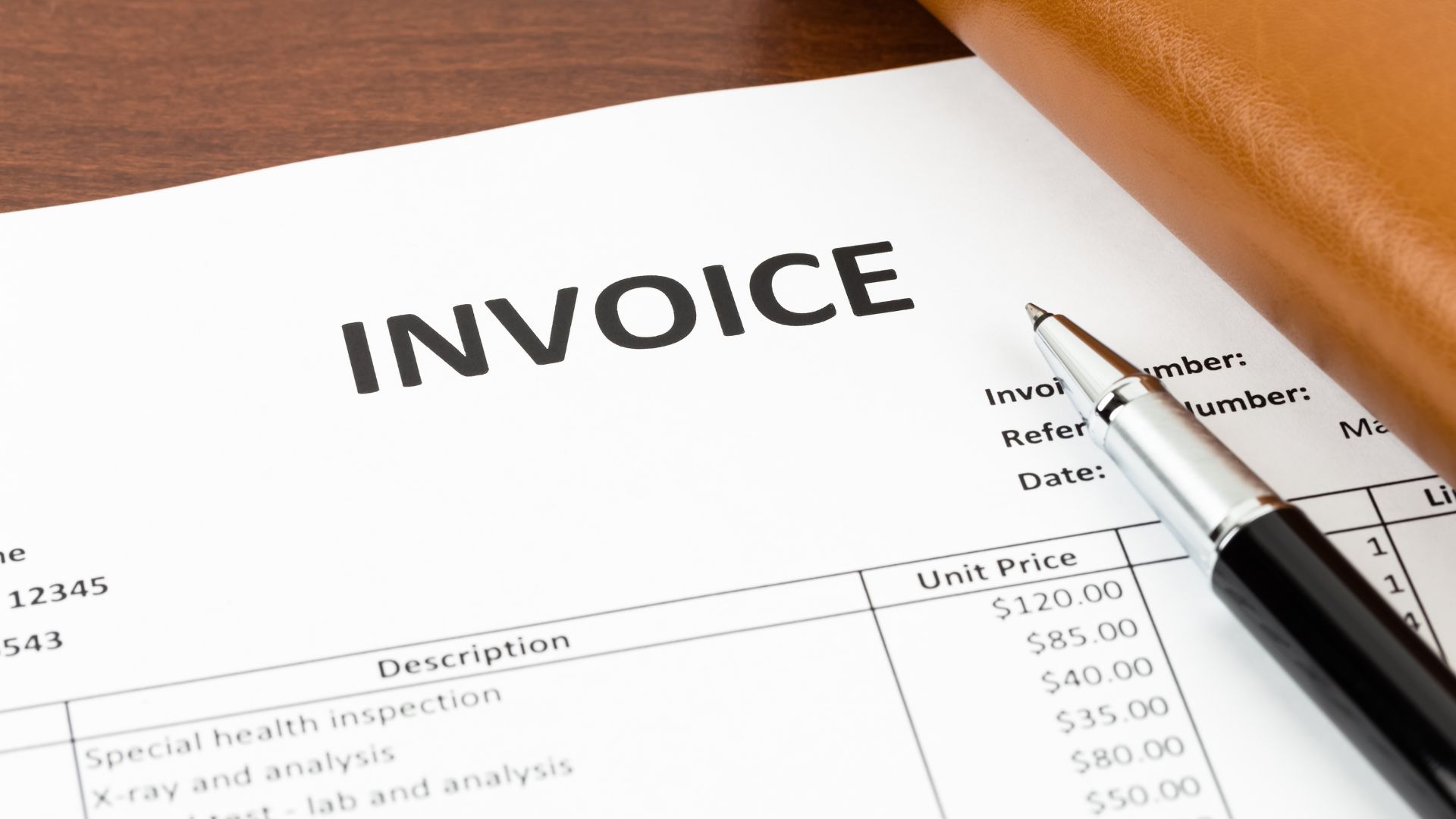
2. General principles when issuing output invoices
According to relevant circulars and decrees (such as Circular 39/2014/TT-BTC, Circular 119/2014/TT-BTC, Circular 26/2015/TT-BTC, Decree 123/2020/ND-CP), output invoices must comply with the following principles:
- The content on the invoice must be accurate, consistent between copies and consistent with the economic transactions that arise.
- The invoice must include: invoice type name, symbol, serial number, seller and buyer information (name, address, tax code), name of goods/services, unit of measure, quantity, unit price, total amount (in numbers and words), signature, full name and stamp of seller, invoice date.
- Do not erase or correct; use only one-color, non-fading ink; cross out blank spaces (except for self-printed invoices).
- Invoice numbers must be created consecutively from small to large, especially for businesses with many affiliated units, there must be a book to track invoice allocation.
- Invoicing out of order can be fined from 4 to 8 million VND.
Follow regulations on electronic invoice issuance and paper help businesses ensure legality and transparency in financial management.
3. Time to issue output invoices according to legal regulations
The time of issuing output invoices is an important factor in determining the obligation to pay value added tax (VAT) and the validity of invoices according to the law. regulations on electronic invoice issuance Invoice issuance at the wrong time not only affects tax declaration but can also lead to administrative penalties according to legal regulations.
3.1 Legal basis
- Clause 2, Article 16, Circular 39/TT-BTC
- Article 9, Decree 123/2020/ND-CP on electronic invoices
3.2 General invoice timing
- Selling goods: The time of invoice is the time of transferring ownership or right to use goods to the buyer, regardless of whether payment has been collected or not.
- Service provided: The date on which the service is completed, regardless of whether payment has been collected or not.
- Collect money before or during service provision: The invoice date is the date of collection (excluding deposits/advance payments for some consulting services).
3.3 In case of multiple deliveries and service provision
Each time a product or service item or stage is delivered, an invoice must be issued corresponding to the volume and value of the delivered goods or services.
Invoice time by industry and specific field
- Regularly arising services (air transport, electricity, water, telecommunications, television, post, logistics, IT sold periodically): No later than 07 days from the month of occurrence or the end date of the conventional period.
- Telecommunications and IT services for data reconciliation: No later than 2 months from the month the connection fee arises.
- Telecommunications sell prepaid cards, collect connection fees without separate invoices: Generate general VAT invoices at the end of the day or periodically during the month.
- Construction and installation: Is the date of handover and acceptance of completed works or items.
- Real estate business, infrastructure construction: Invoice date is based on the date of payment or as agreed in the contract when ownership has not been transferred; or based on the time of transfer of ownership/usage if it has been transferred.
- Air transport service business via website or e-commerce: According to international practice, no later than 05 days from the date of document issuance on the system.
- Gasoline sales at the store: The time to issue an invoice is at the end of each sale, or periodically according to the contract with the business organization or individual.
- Passenger transportation service by taxi using fare calculation software: Billing is done at the end of the trip.
- Banking, securities, insurance, money transfer services via e-wallet: Generate a consolidated invoice at the end of the day or month if the customer does not request a separate invoice.
- Medical facilities providing medical examination and treatment services: Synthesize and create electronic invoices at the end of the day based on medical examination and treatment information and receipts.
Some important notes
- Invoices must be issued on time for each case to ensure legality and avoid tax risks.
- Usage Electronic invoice according to regulations on issuing electronic invoices Helps simplify procedures, ensures safety, transparency and convenience for businesses in invoice management.
- Business owners and accountants need to clearly understand the output invoice timelines to accurately declare taxes and avoid violating regulations.
If you want to learn more about Invoice regulations and instructions for creating legal electronic invoices, Bizzi is always ready to accompany your business with professional electronic invoice management solutions, saving time and costs.
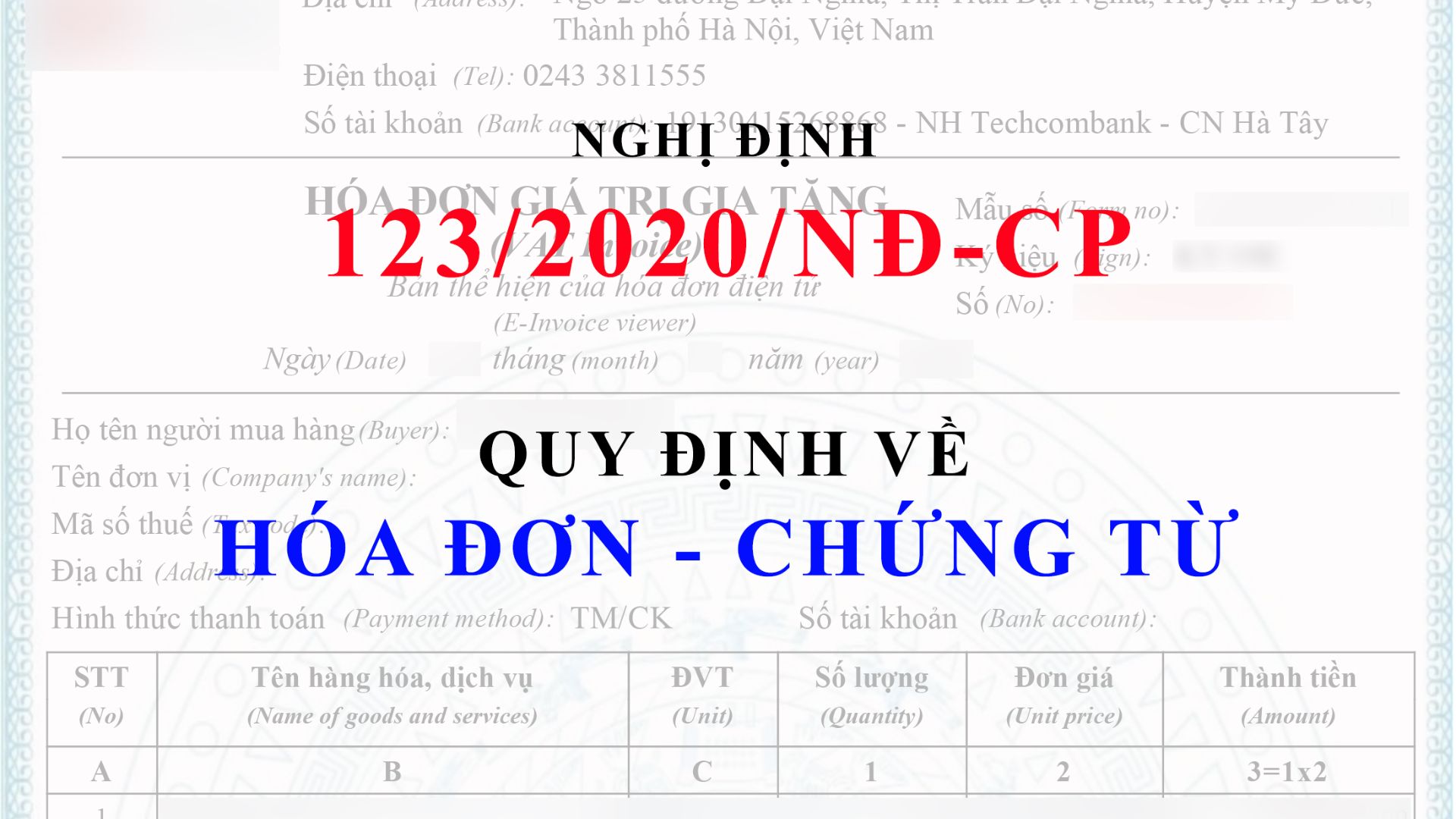
4. Common types of invoices
In Invoice regulations, businesses need to understand the common types of invoices to ensure proper implementation of procedures and avoid errors in financial management. Common types of invoices include:
- Value Added Tax (VAT) invoice: This is the main type of invoice used in the sale of goods and provision of services subject to VAT, and is strictly regulated by law regarding how to create and use it.
- Sales invoice: Used for transactions not subject to VAT or cases where the business is not required to declare VAT.
- Other bills: Including stamps, tickets, cards, receipts used in specific fields such as transportation and warehousing services.
- Receipt for air freight, transportation, and warehousing: Is a receipt for payment according to regulations, serving the purpose of financial management and accounting of the enterprise.
- Electronic invoice: According to regulations on electronic invoice issuance, this is an increasingly popular form of invoice, including invoices generated from cash registers with tax authority codes, helping to save time and printing costs, while ensuring legality and transparency.
- Documents equivalent to invoices: Such as internal delivery and transportation vouchers or delivery vouchers for goods sent to agents for sale, printed, issued, used and managed like invoices according to current regulations.
Understanding and correctly applying the types of invoices according to Invoice regulations and regulations on electronic invoice issuance helps businesses maintain accounting transparency, optimize cost management and ensure compliance with current tax laws.
5. Cases where an invoice is required and cases where an invoice is not required
According to Invoice regulations in Article 4 of Decree 123/2020/ND-CP, organizations and individuals when selling goods or providing services are required to issue value-added tax (VAT) invoices to deliver to buyers. This regulation is widely applied, including goods and services used for promotions, advertising, samples, gifts, exchange or payment in lieu of salary for employees. In addition, the issuance of goods in the form of loans, borrowings or repayments is also a case of mandatory invoice issuance.
In case the buyer does not take the invoice, the seller must still make and clearly state on the invoice the content such as "the buyer does not take the invoice" or "the buyer does not provide name, address, tax code". For goods used for promotion, gift or internal consumption, the invoice must fully state the content and calculate VAT as a normal invoice, and clearly state the purpose of use such as promotion, gift, donation, etc.
On the contrary, there are some cases where it is not necessary to issue a VAT invoice according to the law. regulations on electronic invoice issuance as follows:
- Compensation, support, bonuses, emission rights transfer fees and other financial revenues are not subject to VAT declaration and payment.
- When selling goods or services with a total value of less than VND 200,000, businesses are not required to issue invoices, unless requested by the buyer. However, at the end of the day, a summary invoice must be issued for all sales under VND 200,000 that day.
- Business entities that self-produce and construct fixed assets for business activities subject to VAT do not need to issue invoices upon completion, acceptance or handover of assets.
- Exporting machinery, equipment, and materials in the form of loans, borrowings, and returns, if there are contracts and complete related documents, will not be required to issue invoices and pay VAT.
- Goods circulated or consumed internally to continue production and business do not have to issue invoices and do not have to pay VAT.
- Goods consigned to agents do not require invoices.
Understanding the Invoice regulations and regulations on electronic invoice issuance Help business owners and accountants ensure compliance with the law, avoid risks of violations in business operations, and optimize tax and accounting management processes.
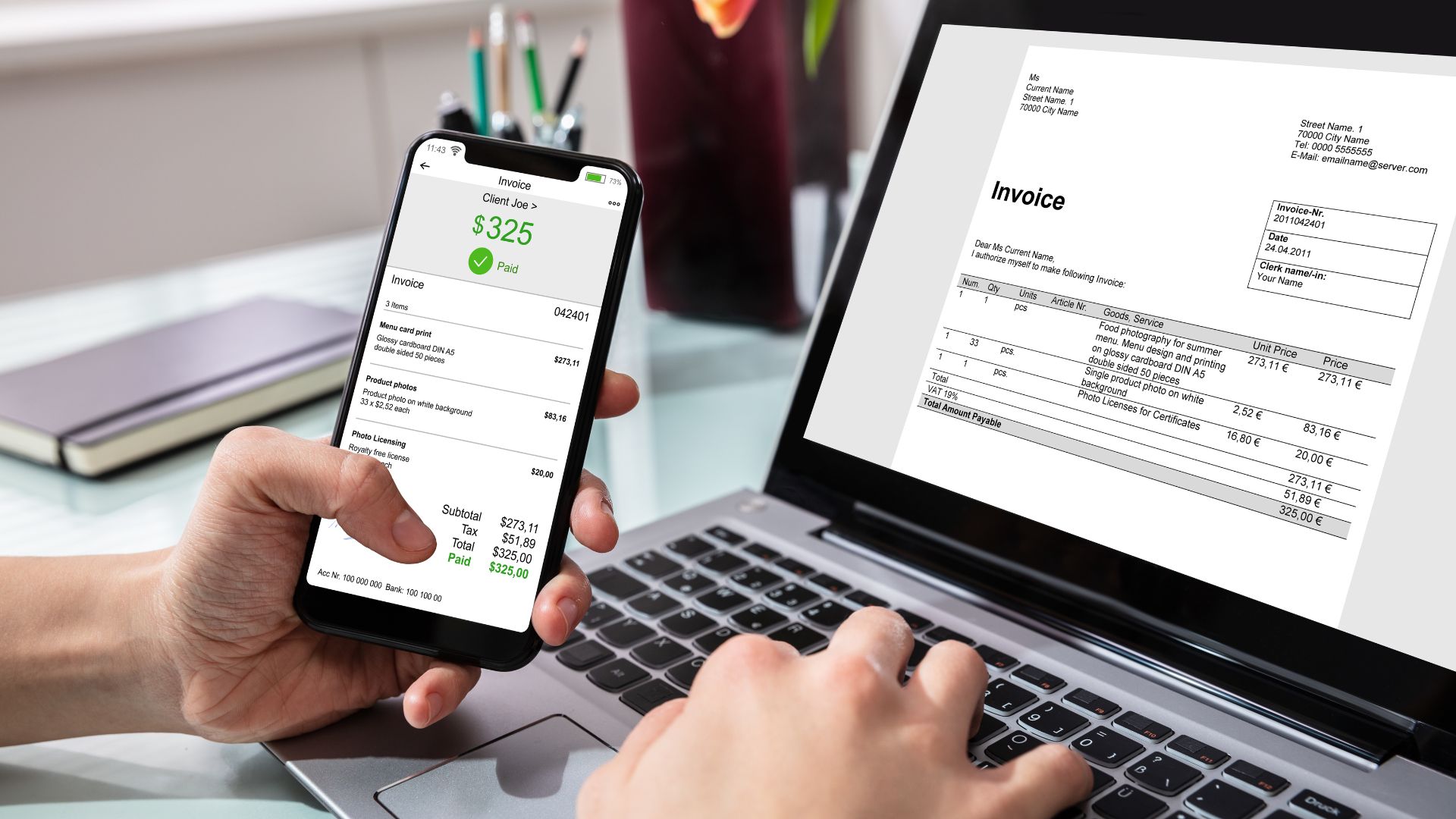
6. Handling of erroneous invoices and penalties for violations of regulations
Compliance with the regulations on invoice issuance and electronic invoice issuance is a mandatory requirement to avoid legal risks and administrative penalties. When detecting errors in invoices, businesses need to promptly handle them according to the correct procedures to ensure legality and transparency in financial management.
- Handling incorrect invoices: According to Decree 123/2020/ND-CP, sellers have the right to choose to notify each invoice or multiple invoices of corrections for erroneous electronic invoices. These errors can be handled by adjusting or replacing the invoice. The notification of invoice correction must be sent to the tax authority no later than the last day of the VAT declaration period in which the adjusted invoice is issued.
- Penalty for selling goods without issuing invoices: Violations of the regulations on invoices will be subject to administrative penalties with a maximum fine of up to VND 20,000,000. In case the tax authority discovers tax evasion or fraud related to not issuing invoices, the enterprise will be subject to a fine calculated based on the number of times the amount of tax evaded, from 1.5 to 3 times the amount of tax, depending on the severity. At the same time, the enterprise must issue invoices in accordance with regulations and pay the full amount of tax evaded to the state budget.
- Penalty for invoicing at the wrong time: Enterprises will be fined from VND 4,000,000 to VND 8,000,000 if they issue invoices at the wrong time. In addition, issuing invoices at the wrong time will also lead to additional taxes and tax collection, along with late payment interest if any.
- Post-dated invoice issuance: Under current law, businesses are not allowed to issue electronic invoices with a date later than the actual invoice date. This behavior will be subject to administrative penalties for invoices. Similarly, delivering goods before but issuing invoices later is also considered a violation of regulations on the time of invoice issuance and will be subject to penalties.
Understanding and correct implementation regulations on electronic invoice issuance Not only does it help businesses avoid serious fines, it also ensures transparent, professional, and legally compliant business operations. Business owners and accountants need to always update and comply with these regulations to effectively manage invoices and avoid potential risks.
7. The importance of compliance with invoicing regulations
Compliance Invoice regulations is a key factor that helps businesses manage tax obligations accurately, avoiding legal risks and unexpected financial losses. When invoices are issued in accordance with regulations on content, time and order, businesses not only ensure transparency in transactions but also improve the efficiency of cash flow management, contributing to financial stability and sustainable development.
Especially in the digital age, the application of regulations on electronic invoice issuance not only helps to minimize manual errors but also optimizes accounting and storage processes. Automation solutions in output invoice management help businesses quickly meet legal standards, while minimizing operating costs and increasing accuracy in tax reporting.
Investing in an electronic invoice management system in accordance with regulations not only helps businesses maintain stability in financial operations but also creates a competitive advantage in the context of increasingly strong digital transformation.

Bizzi.vn and its role in supporting effective invoice operations for businesses
In the context of strong digital transformation and increasingly strict legal compliance requirements, electronic invoice management has become one of the key areas of today's businesses. Bizzi.vn has built an Electronic Invoice solution called B-Invoice, which fully complies with the latest regulations of Vietnamese law, including Decree 123/2020/ND-CP and Circular 78/2021/TT-BTC. This helps businesses not only feel secure legally but also improve financial management efficiency.
Bizzi.vn focuses specifically on processing input invoices (AP – Accounts Payable) and cost management – key steps in the financial operations of a business. Bizzi.vn’s platform clearly recognizes the importance of strictly complying with invoice regulations in the entire financial management process. Therefore, Bizzi.vn develops solutions to help automate financial processes, minimizing human errors in data entry and processing of invoice data.
Outstanding benefits when using Bizzi.vn electronic invoice solution:
- Ensure full compliance with current e-invoice regulations, helping businesses avoid legal risks and unnecessary penalties.
- Automate the process of receiving, checking and storing input invoices, thereby reducing manual work and increasing data accuracy.
- Support tight cost management, helping businesses control cash flow effectively and optimize budget.
- Friendly interface, easy to use, helps accountants quickly get familiar and operate effectively.
- Synchronously integrates with popular accounting and ERP systems, creating seamless workflows.
Thanks to these advantages, Bizzi.vn not only helps businesses improve the efficiency of invoice management but also contributes to promoting digital transformation in the field of finance and accounting, bringing transparency and speed in the financial control process.
Bizzi with B-Invoice solution is the optimal choice for businesses that want to modernize electronic invoice operations, ensure compliance with legal regulations, and improve cost and financial management efficiency. Using Bizzi, businesses can rest assured that their finances will be smooth, accurate, and save significant time.
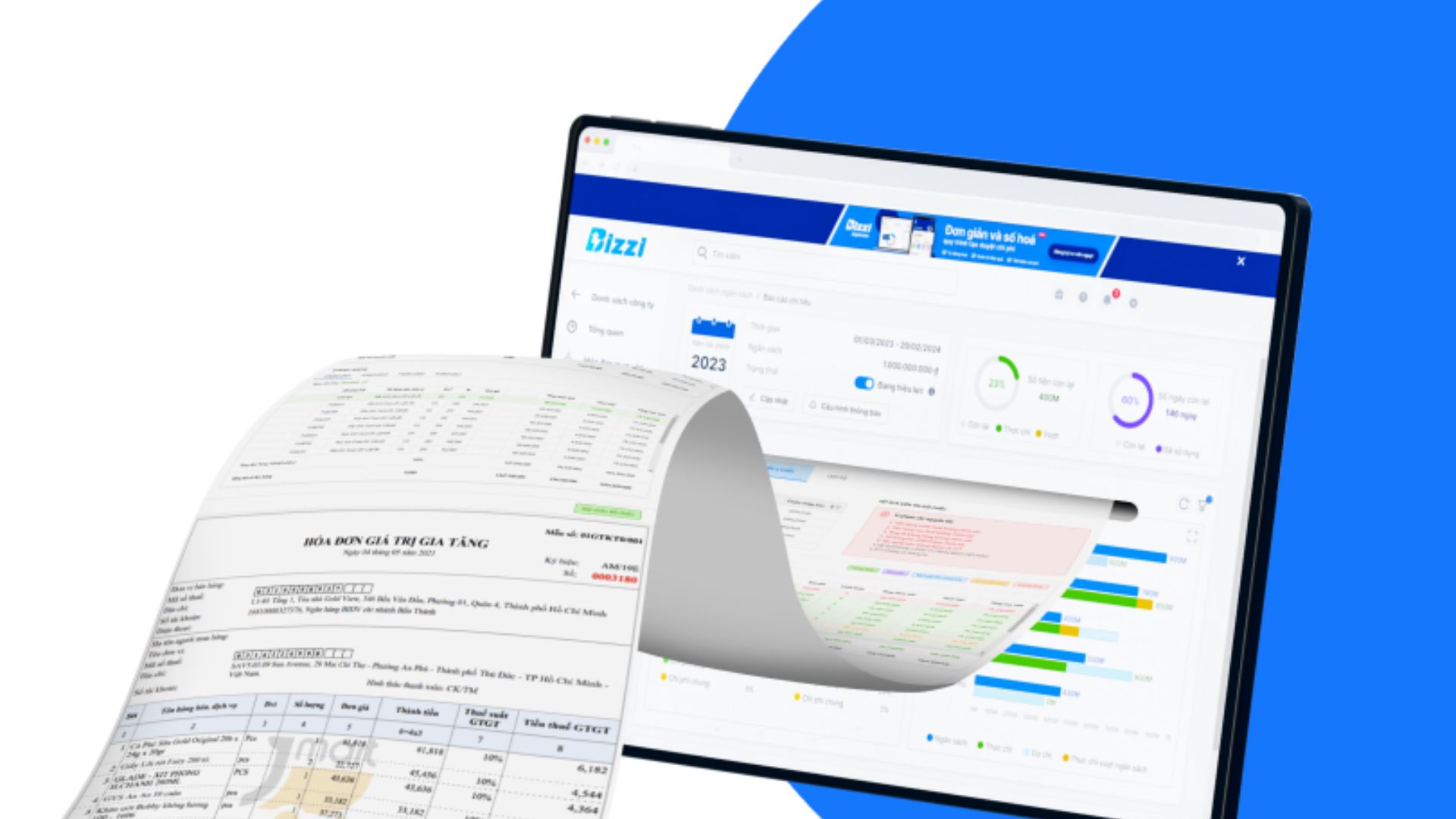
Businesses register for trial at: https://bizzi.vn/dang-ky-dung-thu/
Understanding and complying with invoicing regulations – especially regulations on electronic invoices – is an important step to help businesses operate transparently, effectively and avoid legal risks. At the same time, applying electronic invoices not only helps save time and costs but also improves financial management capacity for businesses. Bizzi encourages business owners and accountants to proactively update and apply appropriate electronic invoice solutions to optimize business operations.
